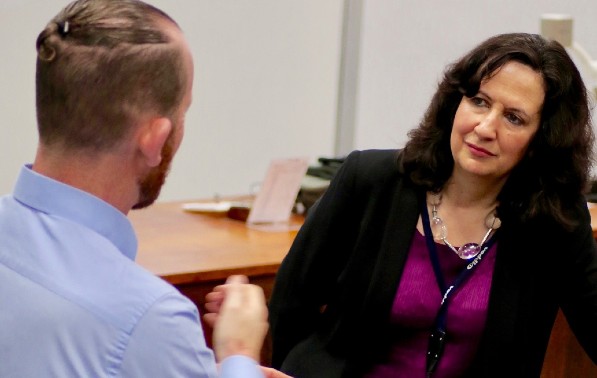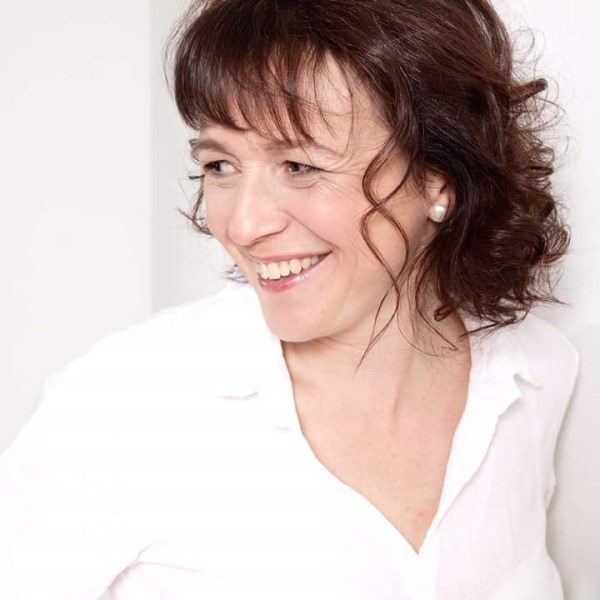
With everything spring 2020 has thrown at us, you could be forgiven for not knowing that 4–10 May 2020 is deaf awareness week. Awareness of deafness is still low in the UK and this is a disability which is often misunderstood and under-researched. Action on Hearing Loss estimated in 2012 that an average of only £1.34 per person with hearing loss was spent on research, compared to £14.21 on sight loss or £21.31 on diabetes.
This year’s theme is acquired deafness, which is the type which the vast majority of the estimated 11 million people with hearing loss in the UK experience. NHS England estimated in a 2015 strategy that this figure could rise to 14.5 million by 2031 due to ageing and increased social and technological noise.
For many, the loss is gradual, and may feel at first as if it is the outside world which is becoming ‘fuzzy’ and unclear, not their own hearing which is reducing. Some people only realise that they have started to use lipreading to support communication when they try to have a conversation in poor light.
As with any loss, it can be a shock. When it happens, we need to go through a similar process to the 5 stages of the grief cycle: denial, anger, bargaining, depression and acceptance. None of these is straightforward. Basic communication can become a challenge and this seeps into almost every aspect of our everyday life. We can feel diminished when we cannot access simple information because the speaker covers their mouth, looks away or is unclear. Yet this is not our fault – it is about how others interact with us.
One of the grief cycle theorists, Kessler, suggests that the ‘sixth stage’ of adapting to a loss is ‘finding meaning’. It is interesting to apply this to hearing loss. We are human and focusing on our loss – risking getting stuck in the middle stages of the cycle – can happen. But finding a purpose to drive us forward is what can enable a person to still feel that they are themselves. There is a high risk of deafened people losing confidence and leaving jobs at which they are often highly experienced and skilled. This in turn can lead to a downward spiral, loss of self-esteem and avoidance of the type of social contact which can help us feel better.
If you have experienced hearing loss, or are close to someone who has, it is worth remembering the additional skills which a person will often develop:
- Empathy for others
- Patience and clarity in communication (on the principle that if you want it you should model it!)
- Time and energy management (lipreading is more tiring - we have to look after ourselves to work sustainably)
- Determination and resilience
- Creative problem-solving.
These are just some of the positives which acquired deafness can bring. In return, deafened people need others to be open, hold a sense of equal space with them which feels respectful – and to keep their sense of humour of course!
Support
There are different types of support available for deafened people in the workplace. These include a range of technological support (to access phones, doorbells and alarms for example), training for colleagues to use clear communication tactics, note-takers, Palantypists –who use special technology to be able to give real-time accurate captions) and lipspeakers – who repeat lip-readably with additional gestures and support, what the person says.
I have worked with lipspeakers for over 20 years. Without their support, I could not have moved into the ‘sixth stage’ of handling my profound deafness. Nor would I have been able to evolve into the social entrepreneur and coach I now know needed to become. So, I thought I would ask an equally experienced lipspeaker, Sarah Maguire a few questions about the work she does.

Photo: Sarah Maguire.
What brings you the most satisfaction as a professional lipspeaker?
Many things bring me satisfaction as a professional lipspeaker. I love walking away from an assignment, knowing that I did my job to the very best of my ability and in doing so that I enabled my deaf client not only to have access to a meeting but to truly be themselves and to shine. To be clear, the resilience and hard work are all my client’s but to play a small part in aiding clear communication is a joy. I have worked with a number of deaf people over the course of many years and it is wonderful to support them in interviews for their first job or for promotion and to walk with them into new jobs and senior roles for example. Having been in the field for a scary number of years, I have had the privilege of working with some incredibly gifted people, in amazing settings such as at high-level diplomatic meetings and international forums, and enjoy the challenges these pose. Examples of these challenges are: listening to the interpretation of a foreign language into English through an ear piece and lipspeaking it so that it truly makes sense on the lips; responding to nuances in tone of voice, or an atmosphere in the room, and attempting to convey that in my face so that the person I’m working for is fully aware of what’s happening, beyond the words.
I also gain satisfaction when someone who works with a colleague who is deaf moves from initial terror, to acceptance, to not even thinking about their interaction with that person nor about using myself as communication support because it’s every day and it works. (For more on this topic see Hormoz's blog here). I’m thrilled when someone can look past the technicalities, or apparent barriers, and simply see the person for who they are and what they have to offer - which is exactly how it should be of course.
Can you describe any differences you have seen in clients when they start to use lipspeakers e.g at work and get more comfortable with doing so?
I was booked to support a mature student in a university setting. She explained that she had only just heard about lipspeakers, had to battle with the institution in order to get the support and had never used one before. As a result, my colleague and I sat a little closer than we might normally have done and made sure that we pared down (removing redundant words or language) so that our pace was gentle. At the first break the client spoke to us in tears, saying that she could understand every word we had spoken and that it was the first time in years that she had not had a headache due to the strain of following. As the day progressed, she became confident enough to interact and ask questions and it was a joy to be a small part of that.
It’s also been a privilege to work with a client over a number of years from their student days to their current post and see how they have developed not only as a person but also in terms of using communication support really well. So that there is mutual respect, flexibility and trust.
Do you have any tips for people currently having to work at distance and perhaps accessing lipspeakers virtually?
There are lots - now - of blogs, workshops and advice out there with regard to remote working. I would simply say that humour, tenacity and flexibility on the part of the deaf person and the lipspeaker are gifts at this time.
I have moved from abject dismay over using various forms of technology, certain that any glitch was my fault, to realising that many of these are simply system overload. I am slowly acquiring the necessary skills. I can now ‘pin’ both my deaf client and co-worker during a Microsoft Teams meeting (so that each person’s video is larger on screen) and a couple of weeks ago that terminology would have meant nothing at all!
If you have questions about this article, or are interested in coaching or training support, please contact us.